It would seem, what have Berezovsky?
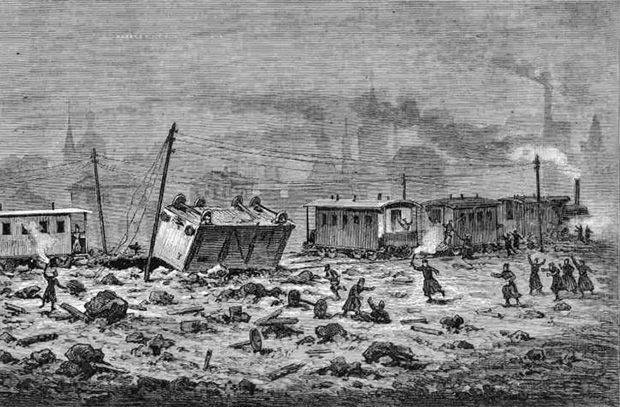
History revolutionary terror under Alexander II
Terrorism was not always associated with bearded men armed with machine guns. A century and a half ago, it was preached and realized by highbrow university students with burning eyes, dreaming about the establishment of a fair system in Russia.
The ideas of the social revolution have become popular in the empire since the 1860s. To a great extent, Chernyshevsky's novel “What to do?”, Written in 1862 – 1863 years and published in the journal “Sovremennik” due to oversight of censorship, contributed to this. The brilliant pictures of the socialist future and the emergence of a generation of “new people” ready to build it infected the minds of youth: many of the nineteenth-century revolutionaries were inspired by the image of Rakhmetov. Another example, which Russian revolutionaries have always remembered, was the Decembrist uprising, whose goal was to change the form of government in the country. Of course, it is impossible to dismiss the fact that the revolutionary organizations that appeared in the empire during these years were also inspired by popular uprisings, of which there were hundreds behind 1860. However, Lenin's phrase “they are terribly far from the people,” said about the Decembrists, turned out to be true in relation to the revolutionary terrorists 1860 – 1870-x. Relying on a popular uprising, or at least on the support of the peasants and small workers, of their own revolutionary attempts, they were mistaken: the people not only did not listen to their propaganda, but also obstructed the regicide adventures.
Popular lack of will
The revolution involves violence, and, probably, any revolutionary who seriously considers the possibility of a regicide and an armed uprising is worthy of being called a terrorist. However, even the Decembrists considered the arrest (and possible murder) of the king as a necessary measure, which frightened and frightened them. The revolutionary terror of the era of Alexander II began with the proclamation of terror as the main method of achieving social transformations. In the proclamation “Young Russia”, compiled in 1862, the student populist Peter Zaichnevsky predicted: “Soon, the day will soon come when we will dismiss the great banner of the future, the banner of red and with a loud cry“ Long live the social and democratic republic of Russian! ” let's move to the Winter Palace to exterminate those living there. It may happen that the whole thing will end in one extermination of the imperial family, that is, some hundreds, other people, but it can happen, and this last is more true, that the whole imperial party, like one person, will stand up for the sovereign, because there will be a question about whether she herself exists or not. "
It is noteworthy that the appeal was condemned even by such radical critics of the authorities as Herzen and Bakunin. Herzen devoted a special article to the proclamation, where he wrote: “Young Russia thinks that we have lost faith in violent coups. We have not lost faith in them, but love for them ... Forcible coups are inevitable; maybe we will, this desperate means of the ultima ratio of nations, like kings, we must be ready for them, but it seems to us to call them out at the beginning of the working day, without making a single effort, without exhausting any means young and immature, how unscrupulous and harmful to scare them. " A well-known anarchist, member of the European revolutions, Mikhail Bakunin, reproached the author for not understanding the people's sentiments: The “Proclamation" Young Russia "proves that in some young people there is still a terrible self-delusion and complete misunderstanding of our critical situation. They scream and decide as if a whole nation stood behind them. And the people still on the other side of the abyss, and not only do not want to listen to you, but are even ready to beat you up at the first wave of the king. ”
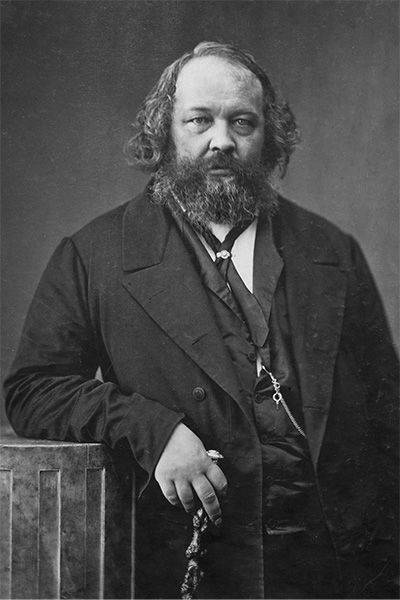
As it turns out later, Bakunin soberly assessed the chances of revolutionary terror. However, despite the criticism, the idea fell into fertile soil: it infected a part of the Narodniks who were members of the Earth and Will organization and became the subject of discussion in other revolutionary circles, such as the Organization and the Hell created by Nikolai Ishutin. However, these circles could not (and did not plan to) work on the implementation of plans in life. Moreover, many of them were surprised and “awakened” by the shot that sounded in the capital of 4 on April 1866 of the year and opened the true era of revolutionary terror in Russia.
The first attempt on the tsar was made by a lone hero, Dmitry Karakozov, the cousin of the revolutionary Nikolai Ishutin. The young man, who has not yet turned 25 years old, trapped Alexander, walking in the Summer Garden, and shot him with a revolver. However, the people prevented the killing of the tsar, the very one whose support was so relied by terrorists. Osip Komissarov, who stood in the crowd of onlookers of the workshop, noticed the young man’s rapid movement through the crowd and realized that he had started something wrong. Seeing the terrorist in his hand a revolver, Komissarov hit it, raising the barrel to the sky.
Karakozov grabbed the king's guard. In his pocket, the police found a proclamation with the words: “Brothers, the thought tormented me for a long time and did not give me rest: why did the Russian people I love, who keeps all Russia, so poor? .. Sadly, it became hard for me that my beloved people, and so I decided to destroy the king-villain and die for my dear people myself. I will succeed in my intention - I will die with the thought that my death has benefited my dear friend, the Russian peasant. But it will not succeed, yet I still believe that there will be people who follow my path. I failed - they succeed. " The court sentenced the terrorist to death by hanging.
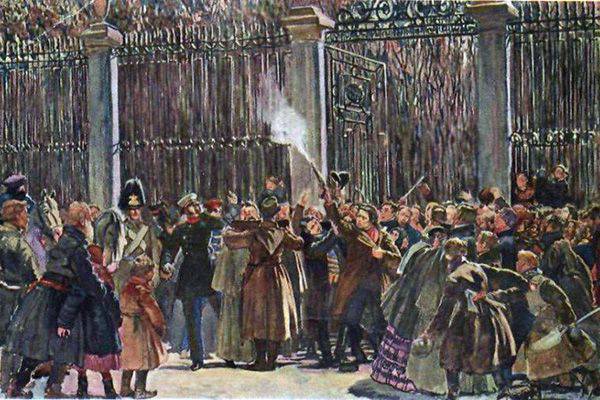
The attempt on the fate of Ishutin was reflected in the most unpleasant way: he was thrown into a solitary cell of the Shlisselburg fortress and went insane. As for Komissarov, he was awarded a reception at the Winter Palace for saving the life of the emperor, where Alexander personally embraced him and in gratitude granted the Vladimir cross of the IV degree and hereditary nobility. So hats affairs master Komissarov became a landowner Komissarov-Kostroma, the owner of the estate in the Poltava province. The incident showed on which side the sympathies of the people were really, the very same people whose narods were baking about.
Sit down five
The shot of Karakozov opened the eyes of revolutionaries to the vulnerability of power, gave them the hope that they could achieve political change by intimidating the supreme carrier of power. Anton Berezovsky, a Pole, a member of the 6 – 1867 uprising who lived in exile, made a new attempt on the sovereign of 1863 on June 1864. When French newspapers wrote in 1867 that the Russian emperor was going to visit the World Exhibition in Paris, Berezovsky decided that this was a rare chance to avenge the suppression of the uprising and help Poland gain independence. Having bought a revolver, he lurked Alexander, when he rode in a carriage along the path of the Bois de Boulogne with his sons and the French emperor. The terrorist turned out to be a bad shooter: a bullet landed on the horse of one of the riders who accompanied the crew. The French court identified the terrorist as a reference to the archipelago of New Caledonia in the Pacific, where Berezovsky died at an advanced age at a time when World War I was raging in Europe.
In 1869, the first professional terrorist organization in Russia, the Society for the Rebellion of the People, was established, with branches in St. Petersburg, Moscow and other cities. One of the members of the central cell was Sergei Nechaev - a person who soon covered himself with ill fame not only in the eyes of society, but also in the eyes of the majority of like-minded people. As a volunteer at St. Petersburg University, Nechaev became acquainted with the legacy of the Decembrists and the Petrashevist group. In imitation of Rakhmetov, Nechaev slept on bare boards and was hungry, tempering his character.
The society, to whose foundation he had a hand, pinned his hopes on the accomplishment in Russia of a “national peasant revolution”, which would eliminate the unjust order and create a new one, based on the principles of compulsory labor and universal equality. The organization was deeply conspiratorial, it consisted of "fives", whose members knew only each other and their leader, and their leader - only their leader, but not members of the other fives. Thus, even when opened by the police, each “five” could not give out the entire organization.
True, the organization did not exist for long, partly because the methods with which Nechaev acted were alarming its members themselves. Nechaev believed that in order to achieve the main goal, a revolutionary has the right to lie to colleagues, to blackmail and intimidate them. From his subordinates, he demanded complete obedience. When Ivan Ivanov, one of the students who joined the organization, accused him of quackery, Nechaev convinced the members of the central "five" that Ivanov intended to extradite them to the police, and organized his murder in the park of Peter's Academy. The police succeeded in uncovering the murder, and this entailed the defeat of the "Society of People’s Massacre." Nechaev managed to flee abroad, but a few years later the Swiss authorities issued him to Russia. He was sentenced to hard labor 20 and through 10 died in the Peter and Paul Fortress. The story of the murder of a student Ivanov was used by Dostoevsky in the famous novel “Demons”. It is curious that the terrorist Petrusha Verkhovensky, whose prototype in the novel was Nechaev, aroused the sympathy of Lenin, who had read the book and responded very mockingly about it.
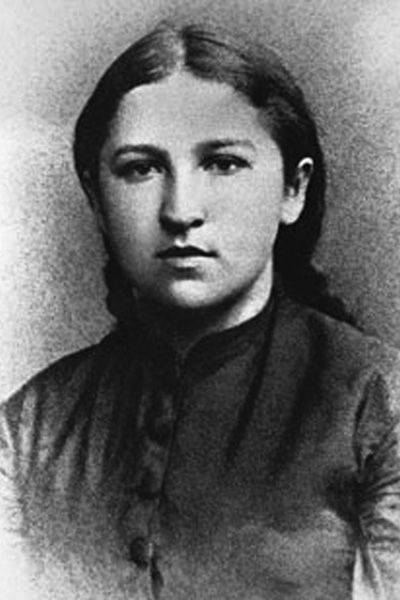
Alarm of terror
Petr Tkachev, an adherent of Nechaev, preached the ideas of terror, who fled abroad and published the Nabat magazine in exile, calling for a violent change of power. Tkachev learned lessons from the mistakes of his predecessors: he no longer relied on the “peasant revolution” and called for the dictatorship of the revolutionary minority, which would allow to restructure society on a communist basis. “The people,” Tkkachev argued, “cannot save themselves; he is left to himself, cannot arrange his destiny according to his real needs, cannot carry out and implement the idea of social revolution in life”.
As the populists became imbued with the idea of terror and began to implement it, the attitude of the public to acts of terror changed. The act of Vera Zasulich played a huge role in the propaganda of terror as an effective means in a dialogue with the authorities. This revolutionary was first arrested in connection with the case of the Society of People’s Violence - for mediating Nechaev’s correspondence with other conspirators, although she herself was negative about Nechaev and did not approve of his methods. Zasulich understood terror not as a means of intimidation, but as a form of accountability of the government to the people: when the Petersburg mayor Fedor Trepov ordered to shoot out the arrested populist Alexei Bogolyubov for not taking off his hat, Zasulich came to the reception to Trepov and seriously wounded him with a shot revolver. The change in attitudes towards terror among the intelligentsia is indicative: at the trial, Zasulich was completely justified by jurors, although such crimes were supposed to be up to 20 years in prison.
The growing popularity of terror led to a heated debate within the “Earth and Will”: part of the organization still relied on propaganda among the peasantry, which in the future would lead to a popular uprising, while others demanded a switch to political killings. The new attempt on the emperor, which happened on 2 on April 1879 in Petersburg, added to the discussion. This time the terrorist was a professional - Alexander Solovyov entered the “Earth and the Will”. Having met the emperor during a walk along the Moika embankment (Alexander had a dangerous habit of walking unaccompanied), the terrorist began shooting at him from the 5-meter distance. The first slip solved the case: the king set off to flee, so the two subsequent shots did not harm him. Here the captain of the gendarmerie patrolling the street arrived in time to help the sovereign, striking the terrorist with a sword flat. This prevented Solov'ev from aiming again, and the next shot missed the target. The terrorist who attacked the life of the king twisted the people. Solovyov was hanged in the presence of tens of thousands of people.
Unable to agree on the need for terror, in the summer of the same year, Earth and Will broke up into two new organizations, the Narodnik Black Revolution and the terrorist Narodnaya Volya. The executive committee of the “Narodnaya Volya”, which organized the meeting after the execution of Solovyov, made a firm decision to kill the emperor. From now on, the assassination attempts on him ceased to be a matter of singles: the question became a matter of honor for the whole terrorist organization.
The Hunt for the Sovereign
However, to carry out the plan was not easy. Luck almost smiled at the terrorists in the autumn of the same year, when the Moscow group of the People's Volunteers managed to mine a section of the railway that the tsar's train was returning from the Crimea. Having bought a house not far from the road, the conspirators dug an 40-meter underground tunnel and laid a mine under the rails. The Tsar was saved by an accident: because of a malfunction of the locomotive of a train with a suite found in Kharkov, which usually went in front of the Tsar's, the Sweet train was stopped, and the one in which the emperor was in front of him. Terrorists freely missed the royal train, and while passing through the station with the retinue they blew up a mine. The train derailed, but, fortunately, no one died: only the baggage car overturned.
The next attempt was made by the young carpenter Stepan Khalturin, who was connected with the people of the People's Revolution, who in the same fall got a job in the Winter Palace. He managed to bring explosives into the basement and make a powerful explosion on 5 in February of 1880. Once again, the tsar was saved by a happy circumstance: at the time of the explosion, he was not in the palace, but 11 killed innocent guards as a result of the terrorist attack. The escaped Khalturin was later seized and hanged.
Furious at their failures, the terrorists staged a real hunt for the crowned leader. 1 March 1881, the royal carriage rode along the embankment of the Catherine Canal. It was the emperor himself with the Grand Duke Mikhail Nikolayevich and the Grand Duchess Catherine Mikhailovna. The carriage was accompanied by 6 horse Cossacks and two sleds with guards. On the embankment towards the carriage moved the people of Nikolay Rysakov, who was carrying a bomb wrapped in a white scarf in his hands. As soon as the carriage approached, Rysakov hurried toward her. One of the Cossack guards spotted a young man and galloped towards him. Rysakov threw a bomb. The carriage stopped from the explosion. The bomb killed several security guards, and a 14-year-old teenager, a random passerby, died in agony near the scene.
However, the king survived: retaining his composure, he got out of the carriage, approached the terrorist and asked his name and rank. The sovereign, not the first time becoming the target of terrorists, apparently wanted to talk to the attacker, to understand the logic that he was guided by. People ran up to Alexander, began to ask if everything was alright with him. The emperor replied: "Thank God, I was not hurt." At that moment, Rysakov began to grin and hissed: “Thank God, still?” The sovereign did not pay attention to this remark. He did not know that another terrorist was standing nearby with another bomb, Ignatius Grinevitsky. To recover from the shock, Alexander walked along the embankment, disregarding the words of the police chief, who asked him to return to the carriage. When the king caught up with Grinevitsky, he threw the second bomb. The explosion was fatally injured both.
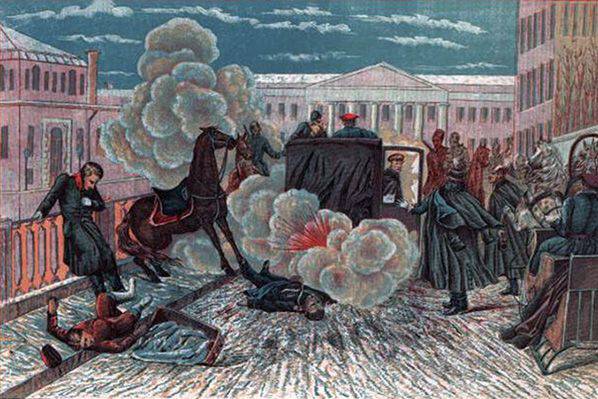
The organizers of the attempt and Rysakov were captured and hanged by the court. The incident was painfully perceived by society: the intelligentsia (including the socialists), overwhelmed by the murder of the monarch, treated the People of the People with real hatred. This rejection, coupled with decisive police measures of the new sovereign Alexander III, made it possible to curb the spread of terrorism: almost all the members of Narodnaya Volya were in prison and in penal servitude, the new revolutionary circles were subsequently crushed. Driven underground, revolutionary terrorism is ripe, like a monstrous boil, to reveal itself with a new force under Nicholas II.
Information